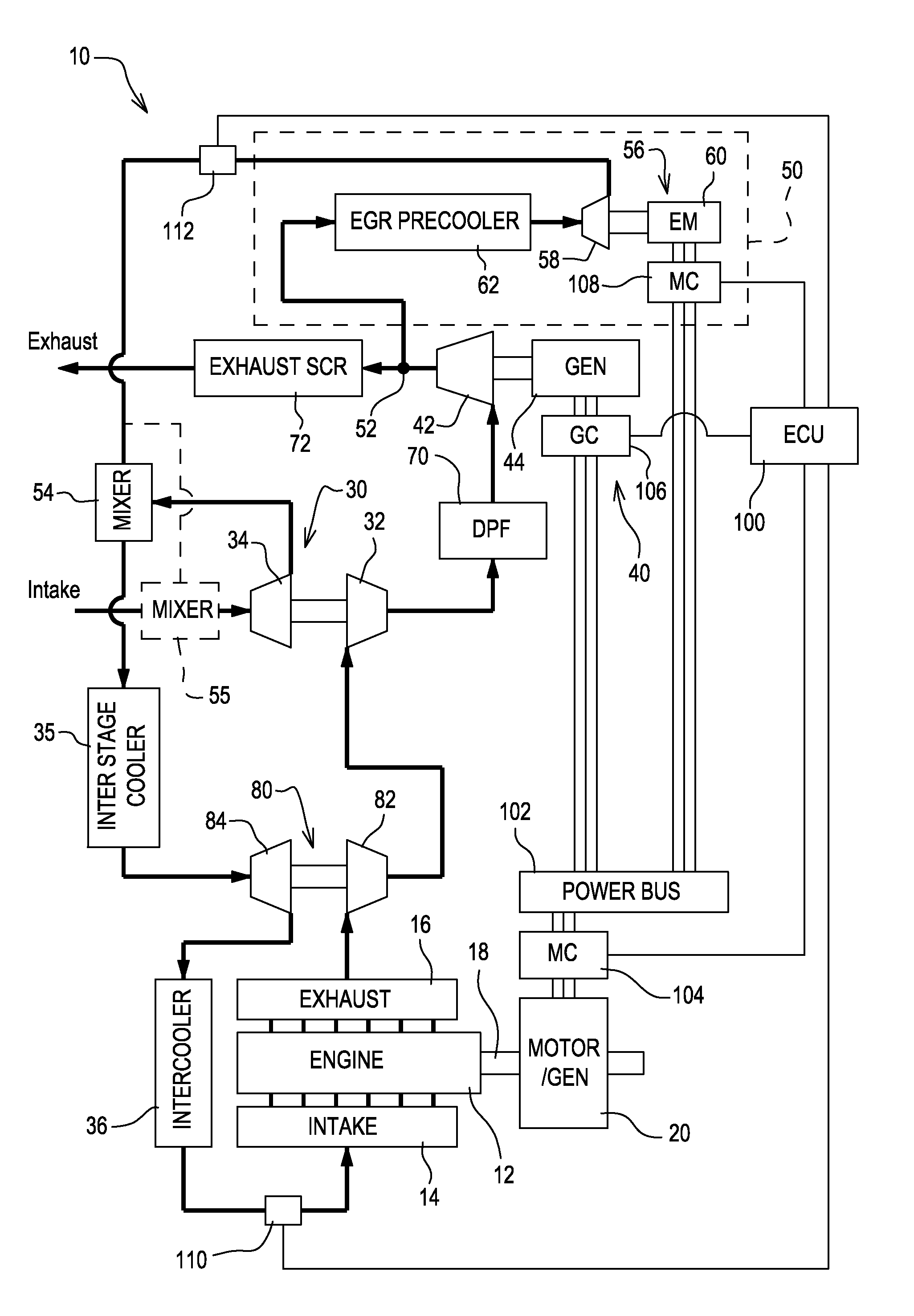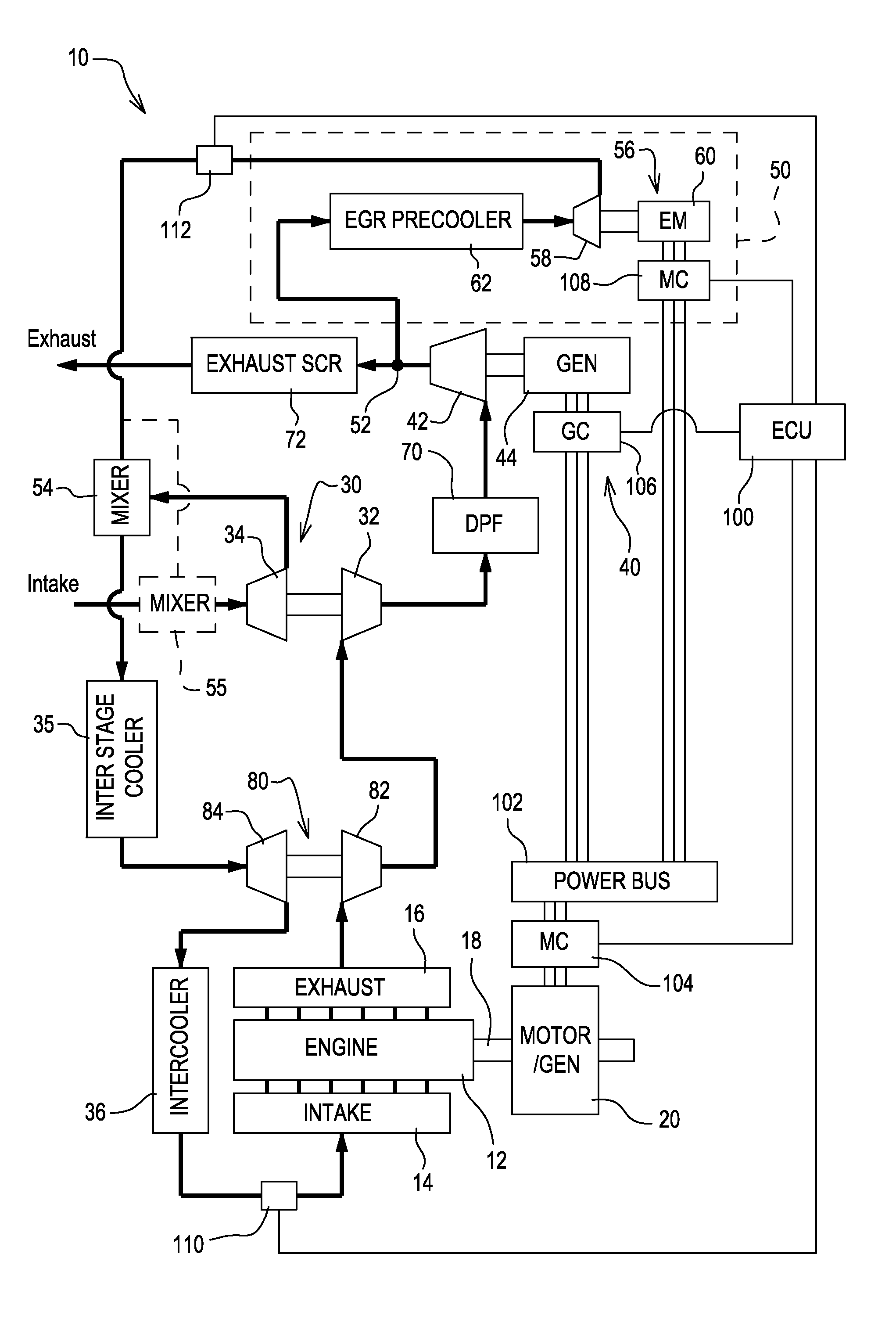Metering exhaust gas recirculation system for a dual turbocharged engine having a turbogenerator system
- Summary
- Abstract
- Description
- Claims
- Application Information
AI Technical Summary
Benefits of technology
Problems solved by technology
Method used
Image
Examples
Embodiment Construction
FIG. 1 shows a schematic for an IC engine 10 that will be well understood by one of ordinary skill in the art. In the schematic the engine 10 is shown with an engine block 12 for internal combustion, an intake manifold 14 for supplying air to the engine block 12 for combustion, an exhaust manifold 16 for collecting exhaust gas from the engine block 12 after combustion, and an output shaft 18 for transferring energy from internal combustion to power external loads. The engine block 12 is representative of any type of internal combustion engine, but is preferably for a reciprocating-type engine having one or more combustion chambers. The engine 10 is further provided with an ECU 100 to monitor sensors and command various functions of the engine 10. Inherent in the ECU 100 is functionality to monitor or calculate engine 10 speed and load, and to command engine 10 functions such as increased or decreased combustion timing in response thereto. Although the system illustrated is applicabl...
PUM
 Login to View More
Login to View More Abstract
Description
Claims
Application Information
 Login to View More
Login to View More - R&D
- Intellectual Property
- Life Sciences
- Materials
- Tech Scout
- Unparalleled Data Quality
- Higher Quality Content
- 60% Fewer Hallucinations
Browse by: Latest US Patents, China's latest patents, Technical Efficacy Thesaurus, Application Domain, Technology Topic, Popular Technical Reports.
© 2025 PatSnap. All rights reserved.Legal|Privacy policy|Modern Slavery Act Transparency Statement|Sitemap|About US| Contact US: help@patsnap.com


